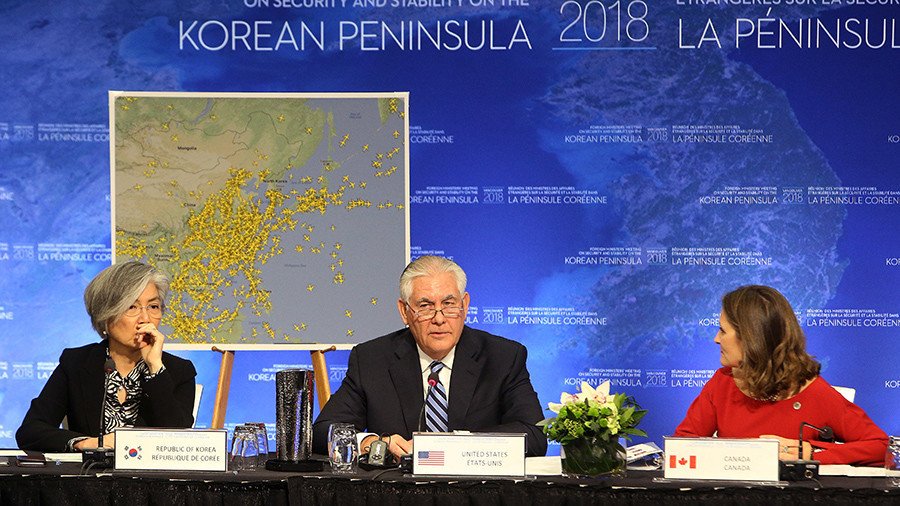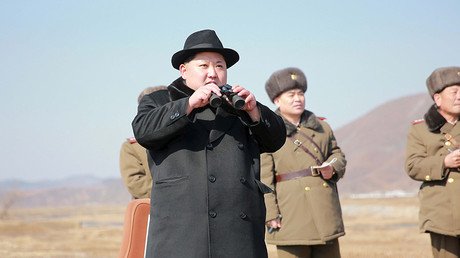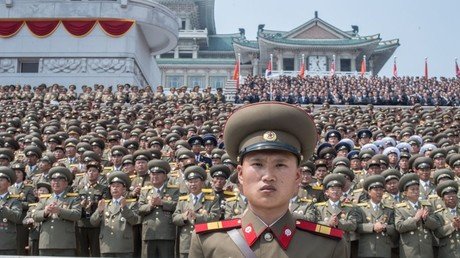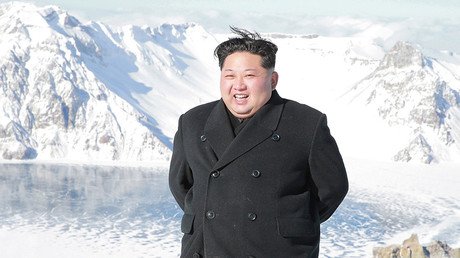Beijing blasts ‘illegal’ US & Canada-led summit for evoking Korean War ghosts

China has criticized the US and Canada for holding a summit of nations, most of which supported Seoul during the 1950s war on the Korean Peninsula, saying evoking Cold War ghosts has no place in the world today.
The summit in Vancouver brought together foreign ministers and top officials from 20 nations, who agreed to ramp up pressure on Pyongyang through additional economic sanctions on top of those imposed by the UN Security Council. China and Russia, which both border North Korea and are major players in the ongoing crisis, were not invited.
Commenting on the results of the event, Chinese Foreign Ministry spokesman Lu Kang dismissed the summit, saying it “has not the slightest legality and representativeness to speak of.”
“It is the 21st century, and everyone is concerned about and working towards properly and peacefully resolving the Korean Peninsula nuclear issue. But some parties dusted off the Cold War term of ‘UN Command’ and convened a meeting where major parties to the Korean Peninsula nuclear issue are not represented,” he noted.
The term he referred to was used for the command of the US-controlled military coalition, which intervened in the civil war in Korea and saved the West-leaning south from the Communist North’s onslaught. The force received a UN Security Council mandate for the involvement. The Soviet Union’s envoy to the UN boycotted the body’s meeting on June 25, 1950, as part of a pressure campaign to replace the Chinese nationalist government based in Taiwan with those of Communists in Beijing, so neither China nor the USSR could veto the resolution.
The UN Command left no city in the north of Korea standing and was only stopped by a Chinese ‘volunteer’ army, resulting in the ongoing partitioning of the peninsula. For North Koreans, the traumatic experience of standing up to American intervention is one of the cornerstones of its state-building mythology. So whatever message the gathering of Pyongyang’s enemies during the war was supposed to send, what the North Korean government is likely to hear is the threat of war. And probably feel more justified in pursuing a nuclear deterrence against the US. But that’s not how the organizers of the event in Vancouver view it.
“Our message is clear,” Canadian Foreign Affairs Minister Chrystia Freeland said in an indirect address to Pyongyang. “The pursuit of nuclearization will bring you neither security nor prosperity. Investing in nuclear weapons will lead only to more sanctions and to perpetual instability on the peninsula.”
US Secretary of State Rex Tillerson accused Moscow and China of failing to properly implement UN-mandated sanctions: “We cannot abide lapses or sanctions evasions. We will continue to call attention to and designate entities and individuals complicit in such evasive actions.”
Moscow, which has expressed doubt over Washington’s strategy of pressuring North Korea into dismantling its nuclear arsenal, earlier called the meeting “destructive.” Moscow and Beijing believe the US and North Korea have to both make concessions and deescalate the conflict before negotiating a suitable solution. According to the ‘double freeze’ plan advocated by the two nations, Pyongyang would have to pause further nuclear and missile tests while the US would put on hold regular military exercises in the region, which North Korea believes to be rehearsal and a potential cover for an invasion.
The US rejects the plan and apparently believes that by squeezing North Korea hard enough it can extract unilateral moves from it.

















